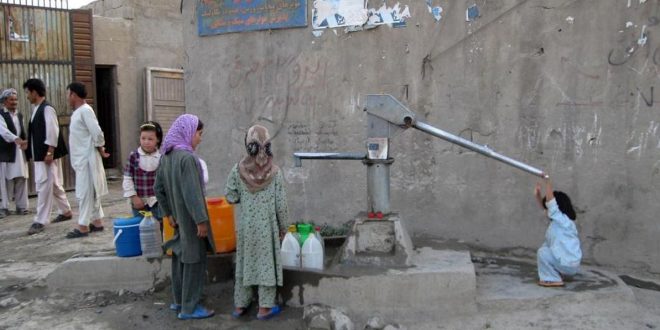AT News
Kabul: Some Kabul residents are lamenting the lack of water in parts of the city and say that the lack of water in many areas has caused them serious problems.
According to Afghanistan Times, they want the officials of the Taliban government to provide them with access to drinking water.
Bakhtiar lives in one of the districts of the capital, he walks fifteen minutes every day to bring water home.
Bakhtiar told TOLOnews about this: “The well in front of our house has dried up and has no water. We face water shortage and, because of that we are walking for fifteen, twenty minutes and fetch water.”
Meanwhile, the Taliban government’s Ministry of Energy and Water says that due to excessive use of underground water and population density, the groundwater level has dropped to five meters.
Azizur Rahman Aziz, head of underground water resources of the Ministry of Energy and Water of the Taliban, says that to solve the water shortage crisis in the capital, the ministry has two big projects underway, which are the transfer of water from the Lelandar Dam and the transfer of water from the Panjshir River.
He said: “The pipe that transfers water from Panjshir is one of those projects. This is a big one, it is not a cheap project, and it worth more than 120-150 million dollars.
With this project, we will transfer about three or four cubic meters of water, which will transfer up to 120 million cubic meters of water to Kabul city every year.”
The Directorate of Water Supply in Kabul says that twenty-seven of the seventy-one wells that provided drinking water to the residents of the capital have dried up.
Mohammad Nasim Samim, deputy head of Kabul water supply zone, said: “In Kabul, we had 71 wells in total from the past to today, of which 44 are active, we are using from those wells, and 27 wells have dried up.” “
The Taliban’s Ministry of Energy and Water adds that in order to provide drinking water in the capital in the short term, this ministry has undertaken the project of transferring water from Shah and Aros dams and Qargha dams.
 Afghanistan Times
Afghanistan Times




